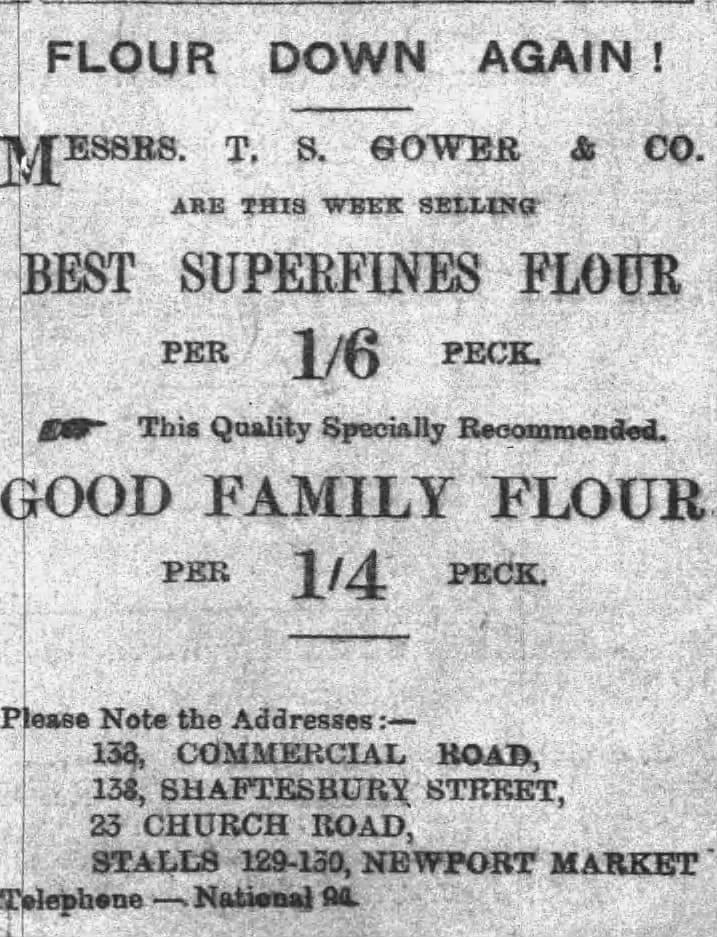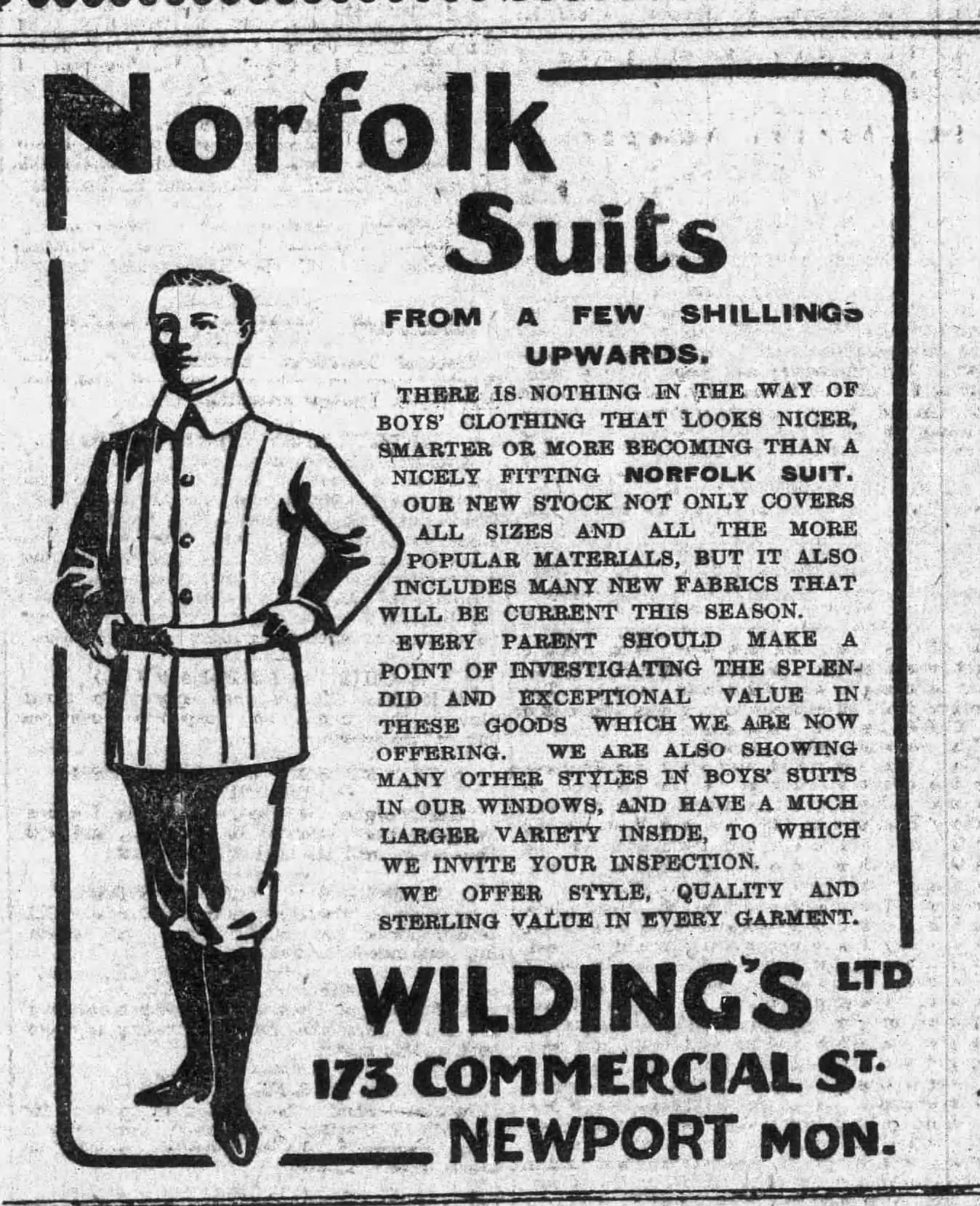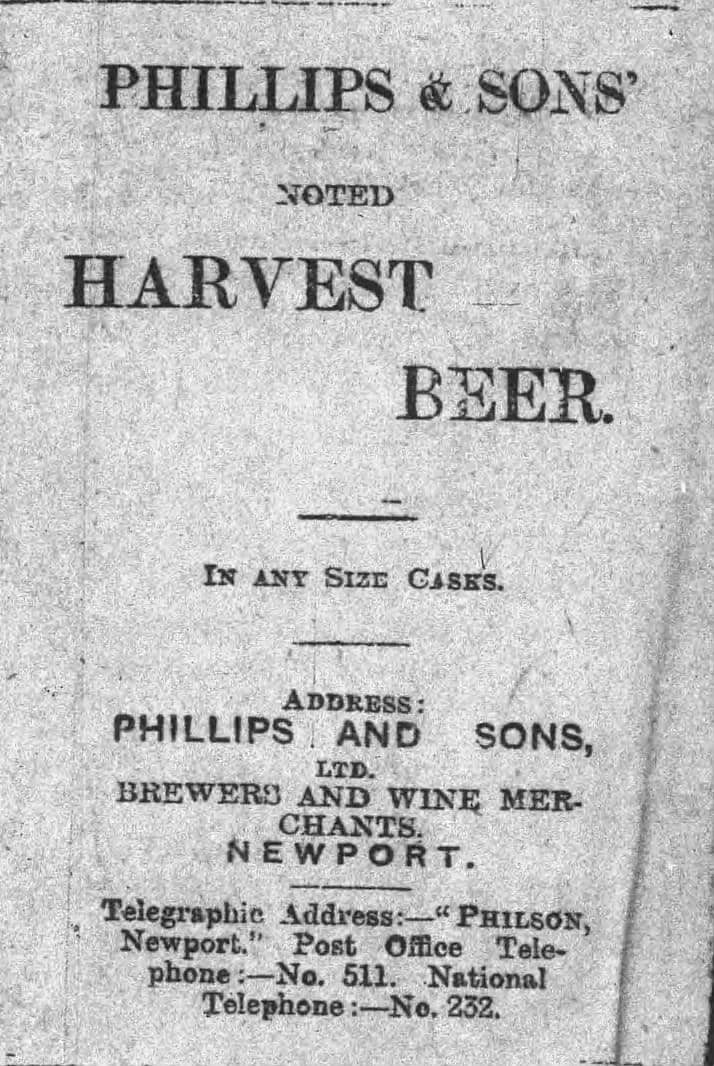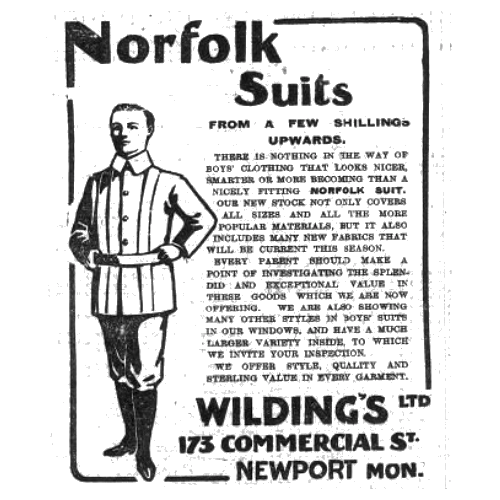Welcome to another issue of The Newport Cornucopia where we dig through the newspapers archives for interesting news articles and adverts. All articles are posted verbatim and most headlines are original. If you want to have each issue delivered to your inbox, why not subscribe for free.

Lady Tredegar’s Blankets
While the rich are partaking of the wonted and well-known hospitality of the noble Baron of Tredegar, it is pleasing to know that the poor are not forgotten, or their wants disregarded. At the commencement of winter, Lady Tredegar, with her usual consideration and kindness, distributed her annual donation of blankets, with other articles of warm clothing, among some two hundred poor people of Bassalleg and the adjoining parishes; and on Christmas Eve the children of Bassalleg School, 120 in number, were entertained, to their great delight, at Tredegar Park, by Lady Tredegar in person, with abundance of cake and tea, her ladyship having on the previous day attended their examination at school, and rewarded the most proficient and deserving with suitable presents of well-selected books.
— Western Mail, Saturday 1st June, 1870
New Year’s Day Food Donations
Worthy Example
It is with great pleasure that we record an act of seasonable benevolence on the part of our respected townsman, Mr Windsor Gibbon, of the Union Hotel, Dock Street. On New Year’s Day he gratuitously supplied with soup and bread between 200 and 300 poor men, who warmly expressed their gratitude to their kind and generous entertainer.
— Western Mail, Monday 3rd January, 1870
Another Worthy Example
Mr J. S. Stone, of the Agricultural Implement Works, Dock Street, presented each of his numerous workmen with an order for a supply of good roast beef on New Year’s Day.
— Western Mail, Tuesday 4th January, 1870



Relighting Trinity Church, Pillgwenlly
For some time past the occupants of some portions of Trinity Church have complained of the defective lighting, and the almost semi-darkness to which they were subjected. Now, however, the arrangements for lightning have been altered, and rows of standard lights are placed in each of the aisles. The improvement is much appreciated, and adds much to the comfort of the worshippers.
— Western Mail, Saturday 15th January, 1870


Stealing a Cask of Beer
Thomas Owen was charged, at the instance of Fanny Knight, a woman of ill-fame, with stealing a small cask of beer from her back premises in Marshes Road. P.C. Gadd proved bathing found the prisoner sitting in the soft mud of the river Usk with the cask. It appeared that the prisoner had a glass in his hand, and having by some accident upset a glass of beer, he commenced to swear, which attracted the officer’s attention to the spot. It was four o’clock in the morning and dark. Asked the man to bring up the cask, when he made an effort to do so, and fell on his back in the mud, with the cask on the top of him. Went to his assistance, or the man never would have got up. Eventually took him into custody. Had it been spring tides he would have been drowned.
There appeared to be something very singular in the manner in which prisoner had acted. The officer considered him the worse for liquor—in fact quite drunk and in a fearful mess. The superintendent observed that it was the other fellows who had been seen at the back of the premises, but who could not be identified, who had committed the robbery and made a dupe of the prisoner, who was a Welshman from Montgomery, and understood English (but imperfectly).
Mr Keswick said there was no evidence to show that the man had gone to the house at all, and it further appeared that the woman kept a brothel. It was a charge which the bench could not, strictly speaking, deal with. He was a perfect stranger and had no witnesses to call. He had come into the town from Builth to look for work, and had met with some men, who induced him to go to a house to drink. He was never at the house from which this cask had been stolen.
The Bench said they had no alternative but to commit him to take trial at the next session. They hoped some information would be obtained of the matter.
— Western Mail, Thursday, 20th January, 1870
Drunk in the Cellar
John Wheeler, a lodger at the Beehive, was charged by the landlord with being in the cellar with a felonious intent. The complainant said he found the prisoner among the beer casks, drunk and fumbling about in a very happy state, last Saturday morning; he having no business there. Prisoner said something about thirsty, from taking a drop too much overnight; so he wanted a cooling drop more in the morning.
Discharged
— Monmouthshire Merlin, Saturday, 12th January, 1850


New Church on Gold Tops
Two articles in the same edition of the Western Mail announcing the building of a new St Mark’s church, Gold Tops to replace the old one.
A New Church
It is rumoured that a new church is to be erected on the Gold Tops, at Newport, and that the site determined on is the remaining space between the villas now forming a line on the brow of the hill. The accommodation at St Mark’s church is totally inadequate for the worshippers attending there, and this has given rise to the contemplated erection of a new and more commodious edifice.
The New Church
It is gratifying to announce that Lord Tredegar, with his characteristic generosity, has given a site on the Gold Tops sufficient for the erection of a church and parsonage house. The projected building is to be sufficiently commodious to seat 800 persons, and 500 of those sittings are to be free. already there are a number of navvies employed to make and improve the roadways leading to the spot selected.
— Western Mail, Saturday 1st January, 1870
And on a related note…
St Mark’s Monthly Magazine
Although it was rumoured that this interesting serial was to cease at the end of the year, we are pleased to find that it is being continued, and renewed efforts are being made to make the publication even more interesting and attractive to its readers. If the current number be a specimen of its general character, we shall be disappointed if it does not attain a large sale. It is especially worthy the perusal of all true lovers of the Established Church.
— Western Mail, Saturday 15th January, 1870

That in the opinion of this Council the time has arrived that a free library and reading room should instituted in this town.
— Mayor of Newport, Western Mail, Thursday 6th January, 1870
The Western Mail had a follow up to the above quote in their 22nd January edition.




Announcement of the new Kardomah Café


Newport Fire Brigade and the ‘Greater Newport’ Area
Our report of the deliberations of the Newport Town Council meeting contained an item to which but passing reference was made, but which is of great importance to the outlying districts, sometimes called “Greater Newport”. These suburban districts, which are not directly under the government of the Town Council, while they enjoy the blessings of lower rates frequently suffer inconveniences to which the more heavily-rated inhabitants of the borough are strangers. Apart from the advantages of better drainage, scavenging, water supply, and street lighting, these little communities are often heavily handicapped by having no fire extinguishing apparatus, and the want of the adequate provision in case of fire constitutes a constant menace. It is true that power has been given to them to provide such apparatus by former Acts of Parliament, but very few of these rural parishes have availed themselves of such permission, the initial cost being great than the majority of them will face.
This state of things can now be relegated to the past if these parishes desire to avail themselves of a recent Act of Parliament. By the Parish Fire Engines Act, 1898, parish councils and parish meetings are empowered to enter into an arrangement with an adjoining council for use of its fire brigade and appliances. We presume that this arrangement means the contribution of a certain sum per annum, and we learn that the Christchurch Parish Council have approached the Newport Town Council with a view to entering into such an arrangement as contemplated by the Act.
This comes opportunely, as by a recent decision of the Town Council, the use of the Newport Fire Brigade was ordered to be confined to the borough exclusively. We cannot but see that such an arrangement would be materially advantageous to the two districts. For a small annual sum, the rural parishes of Christchurch would have the use of a brigade and appliances of far greater efficiency than they could hope to get with the means at their disposal while the Fire Brigade would be the recipient of an annual subscription commensurate with the facilities and service. It will be a matter for surprise if either adjacent parishes do not seek to join in a scheme which presents so many obvious advantages.
— South Wales Argus, Thursday 13th October, 1898




— South Wales Argus, 1898, 1907 and 1898









Member discussion